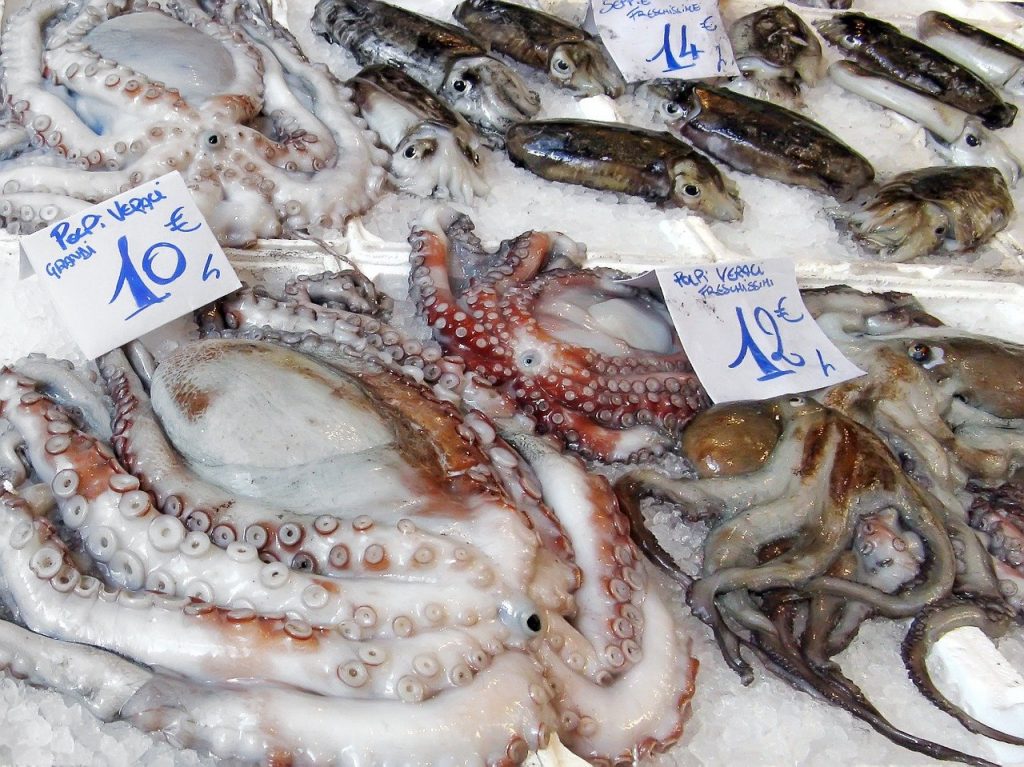Continuing doubts about the expansion of Brixham fish market.
Fears about the effects of more trawling and dredging.
The withdrawal of fish export subsidies.
Talking to Mitch Tonks of Rockfish about getting us to eat more fish.
.
Back in the early summer, there were real tussles over proposals to expand Brixham’s fish quay and market:
Increasing questions about expanding Brixham’s Fish Quay and Market – Vision Group for Sidmouth
More questions about expanding Brixham’s Fish Quay – Vision Group for Sidmouth
Two months ago, the Telegraph and Guardian carried further stories about the proposals:
Increasing the market’s capacity could no doubt be seen as within the spirit of the Britain of the Brexiteers’ dreams. And Torbay, the council area in which Brixham sits, voted clearly in favour of leaving the European Union.
Except that there are rumbles of discontent; doubts about what the extension will really mean. From yachting enthusiasts to day boat and small boat skippers to environmental activists, there runs a strong current of opposition. “The idea that expanding the market creates jobs is a myth,” says Richard Spreckley, commodore of Brixham Yacht Club, which fears the loss of some of its moorings as a result of the scheme. “All it does is increase space for transport or for boxes of fish.” So it won’t help level up the town? “Absolutely not. It’s simply writing cheques for people who have a lot of money already.”
The battle of Brixham is about much more than a fish market
“It will be good for the big boys who already make shitloads of money,” said Tristan Northway, who skippers a 9-metre fishing boat, Adela, and sells directly from the deck of his vessel. “But it will do nothing for the rest of us and nothing for the town.”
Harry Barton, the chief executive of Devon Wildlife Trust, said the expansion would lead to further damage to the seabed and greater carbon emissions. “Trawling and dredging are among the most destructive activities that happen in the marine environment,” he said. “The fishing industry is a major contributor to carbon emissions. This is partly from the emissions of the engines but more significantly because dredgers stir up the sediments on the sea floor, resulting in large amounts of carbon being released.”

Last month, ITV were also in Brixham, reporting on how the loss of subsidies means that some fishers are facing bankruptcy:
“We’re all of a sudden going from 40 years of exporting with no cost to £2,000 or £3,000 a week of costs, which we are not able to sustain for much longer. We have to sell 500kg – half a tonne of fish – per day to cover the extra charges.”
The price has been set by Torbay Council which says the increase has been brought in because a Government subsidy which was available during the Brexit transition period has now stopped.
In a statement, the council said: “The fee is in place to recover some of the costs of providing the service. There is no profit to the local authority at the current level of fee and, without this income, it would be unlikely that Torbay Council could continue to provide this service as it would not be cost-effective.”
And yesterday, the BBC were also in Brixham, talking to Mitch Tonks of Rockfish about why we don’t actually like eating fish very much:
Top chef Angela Hartnett loves cooking fish but wonders why so much of the huge range of fish and seafood that’s landed by British fishermen is exported to continental markets. We may eat some of that world-class catch when we are on holiday in Spain or France, but not at home.
What are the cultural barriers to eating fish? Is it a hangover from the days of the Catholic Friday fast? A sense that meat is more vital and sustaining? Or just that we are a bit rubbish in the kitchen and at a loss when it comes to cooking fish?
Angela reports from the fishing port of Brixham in Devon as the trawlers come in and the fish is sold by electronic auction in the neighbouring fish market. She shares her thoughts with fellow chefs and seafood restaurant owners Mitch Tonks and Nathan Outlaw, together with representatives of the fishing industry.
Meanwhile on the East Coast, we hear Mike Warner out fishing for herring – the affordable, plentiful but neglected fish that was once a staple, Pen Vogler gives us the historical context, and Angela has some conclusions about how to turn this island into a land of fish lovers at last.